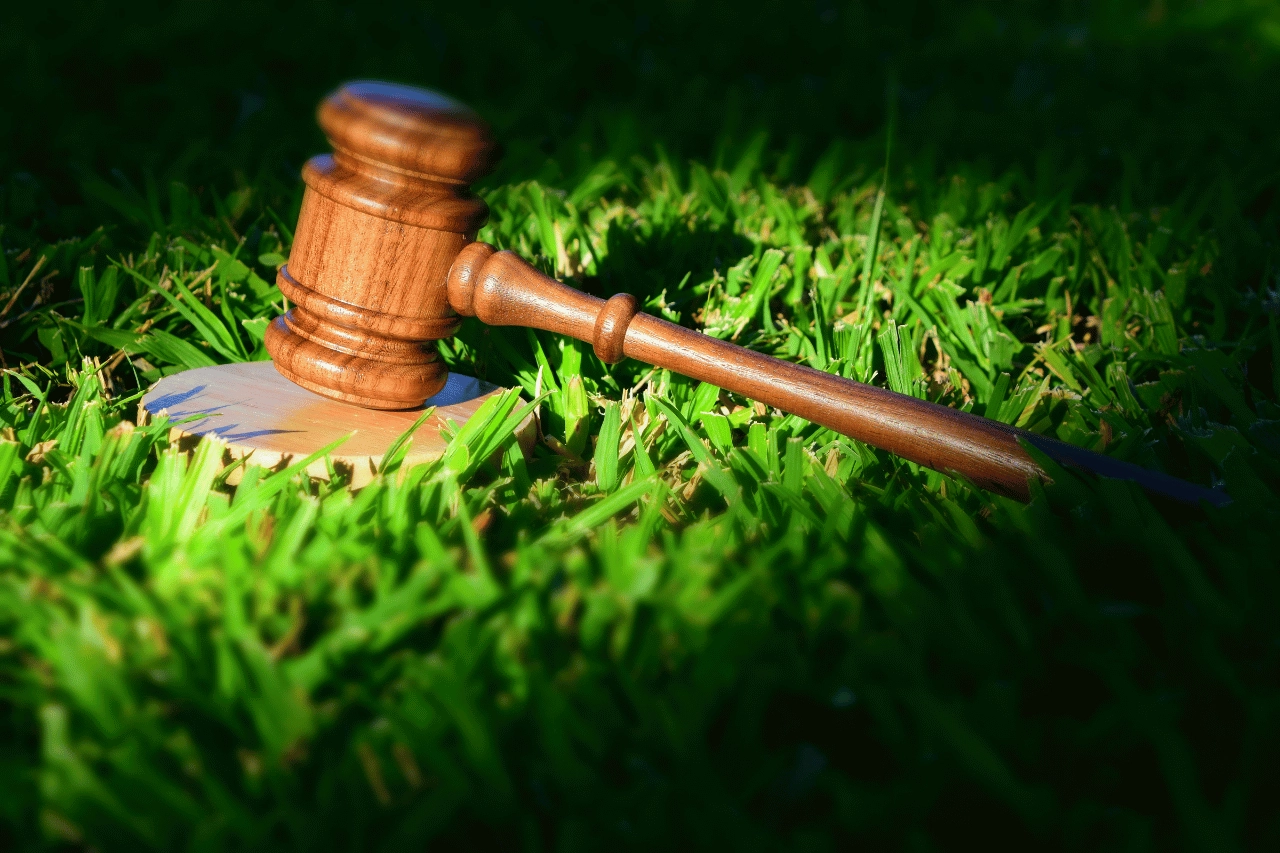Environmental law is a branch of law that deals with regulating the relationships between people, other legal entities, and the natural environment. The primary goal of this legal field is to preserve, protect, and improve the environment. This legal discipline includes legal norms, principles, and instruments that regulate activities that may impact nature, resources, and ecological balance.
In the modern world, where climate change, pollution, and the excessive exploitation of natural resources are global challenges, an environmental lawyer plays a key role in ensuring legal protection and establishing a balance between societal development and the preservation of nature.
Environmental law is not just a set of rules but a fundamental mechanism for protecting the planet and all its inhabitants. Its role is to encourage responsibility toward nature and raise awareness of the importance of a healthy environment. Through the coordinated application of environmental laws, it is possible to create a sustainable future for both present and future generations. The significance of environmental law lies in its direct impact on preserving nature, thereby improving the quality of life for people.
Subject of Environmental Law Regulation
The subject of environmental law regulation is very diverse, as environmental law includes legal norms that regulate matters such as: the prevention of environmental pollution, for example, banning the use of certain harmful chemicals, establishing standards for industrial emissions, and implementing programs for forest and river protection. Additionally, environmental lawyers handle matters related to the protection of natural resources, endangered plant and animal species, waste management, environmental pollution liability, encouraging recycling, the use of renewable energy sources, and many other issues that, in principle, have global significance.
Constitutional Protection of the Environment
The Constitution of the Republic of Serbia guarantees the right to a healthy environment and the right to timely information about its condition. There is also a constitutional obligation that everyone must protect and improve the environment. Therefore, the highest legal act of the Republic of Serbia recognizes the importance of a healthy environment and specifically prescribes the obligation of every individual to contribute to the preservation of a healthy environment, while also refraining from polluting it.
Criminal Law Protection of the Environment
As mentioned earlier, the Constitution of the Republic of Serbia proclaims the right of everyone to live in a healthy environment, as well as the obligation of each person to refrain from any actions that would result in disrupting the biological balance in nature. Environmental pollution liability may be civil, but criminal liability plays a far more significant role in cases of environmental degradation. Environmental law and criminal law in the Republic of Serbia prescribe numerous criminal offenses grouped together and classified as crimes against the environment.

By introducing a special group of criminal offenses, the legislator primarily wanted to achieve a preventive effect in this area and minimize such unlawful actions. In this way, clear boundaries have been set for behaviors that may endanger the environment, which is one of the primary functions of environmental law. Examples include illegal waste disposal, water, air, and soil pollution, and the destruction of plant and animal species. Criminal liability also applies in cases where official or responsible individuals fail to undertake mandatory protective measures, or fail to report or provide false information about the environmental condition.
Moreover, prescribing a large number of environmental crimes has a repressive effect, as strict penalties are prescribed for individuals and legal entities involved in environmental pollution. The qualification of behavior as a criminal offense for acts of pollution provides a legal basis for the subjective responsibility of anyone who engages in polluting actions, which, in turn, encourages others to refrain from such behavior and comply with environmental protection standards.
Anyone who pollutes the environment will not only be liable for damages but will also face criminal liability.
Civil Law Protection of the Environment
The environment is also protected under civil law, and an environmental lawyer provides support in the enforcement of these rights. Civil law protection includes the ability to file a lawsuit against environmental polluters.
In the case of pollution, it is possible to request that the polluter take necessary measures to reduce environmental damage or eliminate further risks, dangers, or remediate environmental damage. If the damage cannot be remedied with appropriate measures, compensation for the destroyed (protected) property may be sought. Civil law protection of the environment is also provided through so-called neighborhood rights. There is a legal obligation for a property owner to refrain from actions or remove causes originating from their property that impede or make the use of a neighboring property difficult, thereby affecting the residents (excessive emissions). Of course, emissions (smoke, noise, unpleasant odors, etc.) cannot be entirely eliminated, but certain levels of these emissions can and must be tolerated. However, if excessive emissions occur, the person who believes their right to a healthy and safe environment has been violated has the right to file a lawsuit.
Additionally, civil law protection includes the right of any person to demand that another person remove a source of danger that threatens significant harm to themselves or an undetermined number of individuals, and to refrain from activities that cause disturbance or risk of damage, especially when conducting industrial activities. The right to
compensation for damage caused by public-interest activities is limited, as compensation can only be sought for damages that exceed normal limits (so-called excessive damage).
Civil liability for the damage caused is based on the principle of objective liability, and damages are compensated up to the value of the destroyed property. The law recognizes the right to compensation for anyone who has suffered damage from environmental pollution, and if no such individuals exist, the right to compensation belongs to the state because natural resources, as part of the environment, are considered state property.
Administrative Protection of the Environment
Environmental protection is also realized in the administrative procedure through the right to access ecological information, where an environmental lawyer plays a significant role, as well as the protection of the public’s right to participate in procedures important for environmental protection. The process of obtaining ecological information is conducted in accordance with the Law on Free Access to Information of Public Importance, and an environmental lawyer provides legal assistance in these proceedings.
Furthermore, positive regulations explicitly guarantee the interested public the right to actively participate in procedures for the realization of the right to a healthy environment, allowing them to initiate review procedures of decisions that may affect the environment before the competent authority or court.
Renewable Energy Sources
Renewable energy sources primarily fall under energy law, but it is essential to briefly address them here because using renewable energy sources undoubtedly contributes to environmental protection. In this context, the link between energy law and environmental law is inseparable. Environmental law, in cooperation with energy law, covers renewable energy sources such as solar, wind, rain, and ocean waves.
In the last decade, there has been a growing trend in Serbia of transitioning to renewable energy sources.
Solar Power Plants
In recent years, the use of solar panels and the construction of solar power plants has become significantly widespread. Serbia has an extremely favorable geographical position and is exposed to sunlight for most of the year. An environmental lawyer can provide legal support in regulating issues related to solar panels. Solar panels significantly reduce carbon dioxide emissions and contribute to environmental protection, which, among other things, is crucial in preventing climate change. The use of renewable energy sources is also in the interest of the Republic of Serbia, which, among other things, encourages the installation of solar panels in businesses and households by providing subventions. The installation of solar panels reduces electricity bills because users can generate their own power, and it also reduces dependence on the centralized power grid.
Legal Services We Provide
Our team has significant experience in this field, providing high-quality legal services that cover all aspects regulated by environmental law. We successfully cooperate with companies, continuously providing legal assistance in the area of environmental law and supporting the improvement of their operations to preserve the environment and prevent its degradation.
The most common services we provide in this field are as follows:
- Providing oral and written legal advice regarding business compliance with laws, regulations, and international agreements.
- Legal analysis of business activities, assessing how operations impact the environment, and offering efficient solutions to overcome any deficiencies.
- Obtaining necessary documentation for obtaining permits/licenses for conducting specific activities, initiating and representing in such procedures.
- Initiating and representing in civil lawsuits related to environmental damage claims (lawsuits for excessive emissions, other claims for compensation, lawsuits for removal of dangers or cessation of activities, and other lawsuits related to environmental protection violations).
- Filing criminal charges for environmental crimes and representing clients in such procedures.
- Preparing defenses in criminal proceedings for environmental crimes.
- Initiating administrative procedures and representing clients before the Ministry of Environmental Protection and other relevant (mainly administrative) authorities to obtain all types of permits.
- Advising and providing comprehensive legal assistance regarding the use of renewable energy sources (from idea to implementation).
- Drafting all types of contracts related to environmental law.
Our law firm has years of experience in environmental law, providing comprehensive legal support to clients in solving complex environmental protection issues. Whether you are facing legal challenges related to pollution, the use of natural resources, or compliance with regulations, our environmental law attorneys will help you find an efficient and sustainable solution.
Key Advantages of Working with Our Team Include:
- Individual Approach: Every case is unique, so we approach each client with care and thorough analysis.
- Expert Knowledge: Our attorneys stay updated on all legislative changes and have a deep understanding of both local and international regulations in the field of environmental law.
- Representation of clients interests: Whether you need assistance in administrative, civil, or criminal proceedings, our environmental lawyer will represent your interests at the highest level.
Frequently Asked Questions
Our law firm provides legal business analysis to identify any deficiencies in compliance with the legislation. After the analysis, we propose specific steps to align your activities with environmental protection regulations, reducing the risk of fines and damages.
If you are facing charges for a criminal offense related to environmental pollution, we provide legal assistance in preparing a defense, analyzing evidence, and representing you in court or before competent authorities.
The process of obtaining environmental permits includes preparing and submitting the necessary documentation to the relevant authorities. Our law firm can assist you at every step, from gathering required documents to representing you in the permit acquisition process until the final approval.
Civil liability involves the obligation to compensate for damage caused by pollution, while criminal liability covers penalties for violations or, in more severe cases, criminal offenses against the environment, such as illegal waste disposal, which can result in imprisonment or high fines. If you find yourself in any of these situations, it is essential to hire a lawyer to effectively protect your interests.
